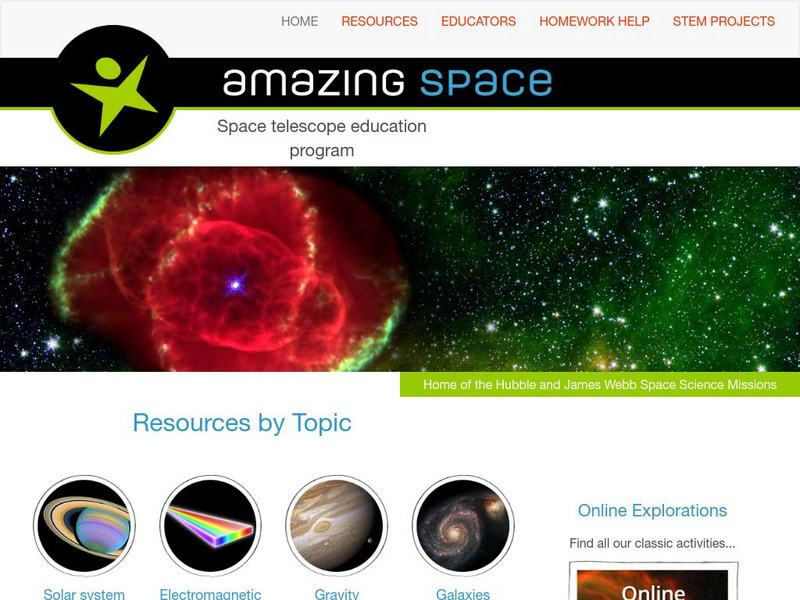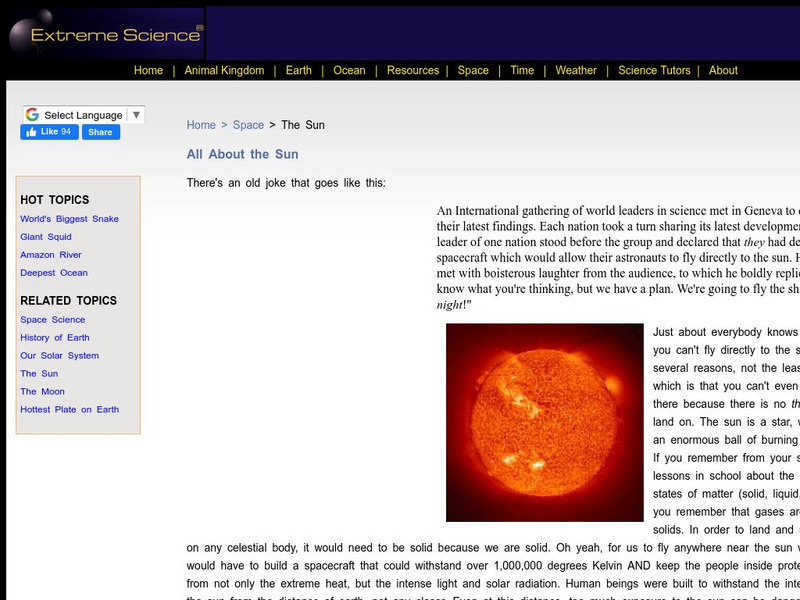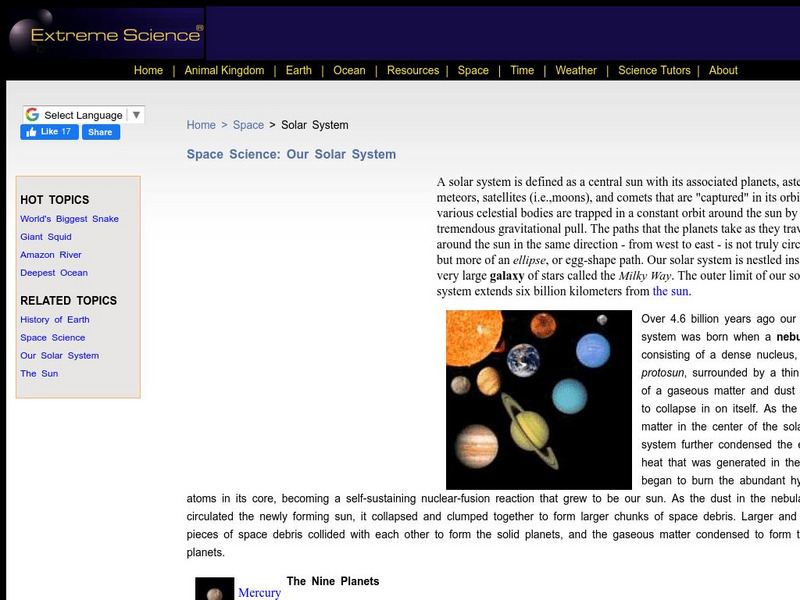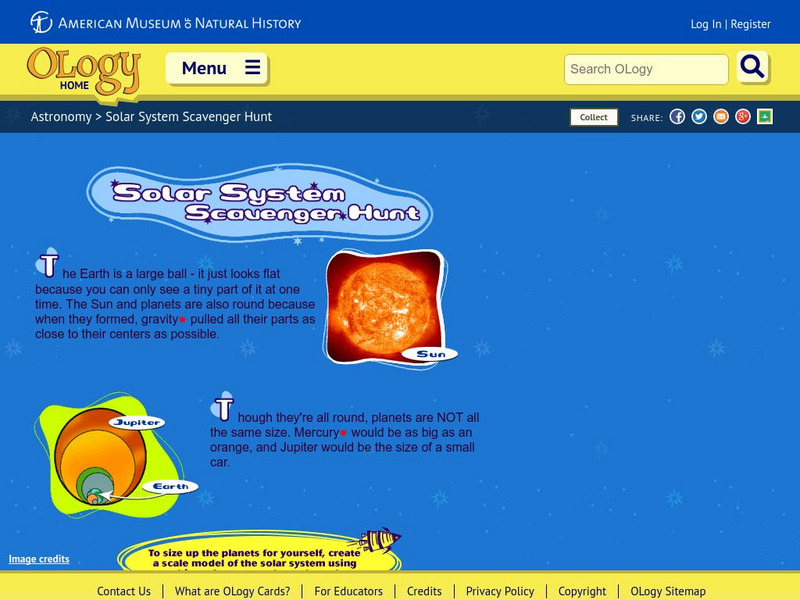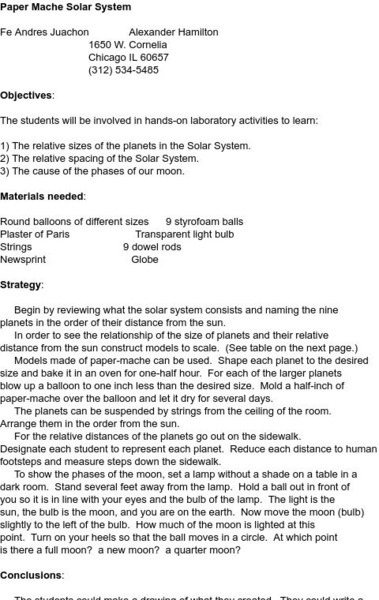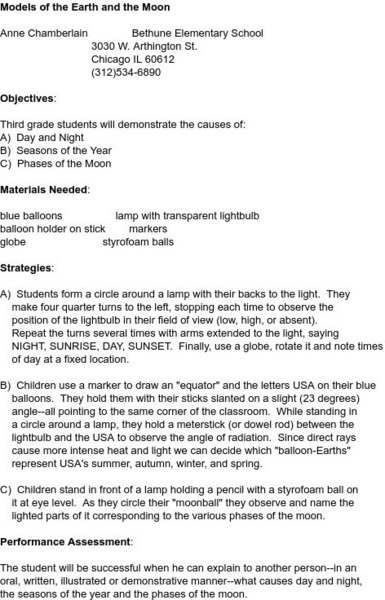NASA
Nasa Space Place: All About Neptune
Learn fascinating facts about Neptune, the last of the planets in our solar system.
NASA
Nasa Space Place: All About Uranus
Discover interesting facts about the planet Uranus and what it looks like.
Utah Education Network
Uen: Composition of the Solar System
Students will use a reading selection to compare the solar system to a neighborhood and do some writing, drawing and make comparisons to reinforce their knowledge about the rocky planets, gas giants and amount of matter in the solar system.
University Corporation for Atmospheric Research
Ucar: The Sun
Learn about the sun, the center of our solar system and the closest star to Earth.
Other
Canal Kids: Ciencias (Science for Portuguese Speakers)
Colorful, engagingly written information about astronomy and biology for Portuguese-speaking English language learners. Both subjects are broken down into a broad array of related subtopics. The biology section is particularly helpful...
Space Telescope Science Institute
Space Telescope Science Institute: Amazing Space
Amazing Space promotes the "science and majestic beauty of the universe for use in the classroom." Here you can find learning activities, lesson plans, teaching guides, and helpful tips for students eager to learn about space and space...
Space Telescope Science Institute
Hubblesite: News Center Release Archive
This site from Hubblesite has a very long list of Hubble Space Telescope Images listed by subject. General categories of subjects include Solar System, Stars, Nebulae, Star Clusters, Novae, Supernovae, Stellar evolutionn, Galaxies, and...
CK-12 Foundation
Ck 12: Earth Science for Middle School
This digital textbook covers core earth science concepts and includes interactive features, real-world examples, videos, and study guides.
Extreme Science
Extreme Science: All About the Sun
Read about the sun, the source of its energy, solar activity, sunrise/sunset times, solar flares, and other interesting facts.
Australian Broadcasting Corporation
Australian Broadcasting Corporation: News in Science: Comets Collide as Star System Dies
From ABC News in Science, Larry O'Hanlon's article examines scientific evidence which suggests that the death of our solar system will be linked to the collision of comets.
Extreme Science
Extreme Science: Space Science: Our Solar System
Read about our solar system and its formation over 4.6 billion years ago. Find out about the planets, asteroids, meteors, satellites, and comets. More in-depth planet background can be accessed through links.
Cosmo Learning
Cosmo Learning: Introduction to Astrophysics
A collection of audio lectures from an introduction to astrophysics course taught at the University of California, Berkeley. The course discusses the solar system, stars, quantum mechanics, gravitation, and cosmology focusing on how...
NASA
Nasa: History of Venus Transit
NASA site recounts the history of the Venus Transits that have occurred over the past centuries and the various descriptions astronomers have written about them.
American Museum of Natural History
American Museum of Natural History: O Logy: Stuff to Do: Scavenger Hunt
Illustrated instructions for creating a scale model of the solar system.
Science and Mathematics Initiative for Learning Enhancement (SMILE)
Smile: Paper Mache Solar System
This site from the Illinois Institute of Technology provides a set of directions for the creation of a solar system model out of paper mache. Includes orbital distances and planet diameters for the nine planets. Great idea for a student...
Science and Mathematics Initiative for Learning Enhancement (SMILE)
Smile: Models of the Earth and Moon
This lesson plan from the Illinois Institute of Technology demonstrates the causes of; day and night, seasons, and phases of the moon.With a few items, you help the elementary student discover why these phenomena occur.
Space Telescope Science Institute
Amazing Science: Solar System Trading Cards
Amazing Science looks at the Solar System with this FAQ site and lesson plan.
Science Education Resource Center at Carleton College
Serc: Mn Step: What Sizes Are the Planets and How Do They Move Around the Sun?
An outdoor activity where learners simulate how planets orbit around the sun using different sizes of balloons.
Ministerio de Educación (Spain)
Ntic: Astronomia Visible
In this site you can learn about stars, planets, satellites and a little history of Astronomy.
Wikimedia
Wikipedia: Timeline of Solar System Astronomy
This site from the encyclopedia Wikipedia provides an in-depth timeline of important events in astronomy relating to the solar system are presented here. Links are also provided for additional information on related subjects.
Other
Skyserver: Asteroids
This site from the SkyServer allows you to learn all about moving objects as well as how to find asteroids. Users that feel adventurous may even decide to take the "Asteroid Hunt."


